50 Fascinating Real-Life Movie Court Cases
Hollywood's historical docket...

Rimowa v. Marvel Entertainment LLC et al.
The Case: An indestructible luxury travel one.
German luggage designer Rimowa GmbH took Marvel to court over a suitcase used by Nick Fury (Samuel L. Jackson) in The Avengers . According to the plaintiffs claims, the luxury travel briefcase - a Topas attache case - made its big screen debut as Fury’s dossier holder, which was in their agreement with Marvel.
The crux of the matter referred to the Marvel Cinematic Universe: Phase One -- Avengers Assembled Box Set which according to the complaint was to be housed in a similar version of their case which had not been licensed to the studio for replica merchandising.
The plaintiffs sought trademark infringement, trademark dilution and unfair competition as well all profits from the purported unlawful conduct.
How It Was Resolved: The outcome of the suit was kept under wraps by the studio, who delayed the release of the box-set. Available as of April 2013, the ten-disc collector’s item came in a different suitcase.

Eisenberg v. Lionsgate
The Case: Shocked to see his visage adorning the cover of low budget horror flick, Camp Hell , Jesse Eisenberg filed a lawsuit against Lionsgate for $3 million.
While he does appear in the film - albeit for a brief five minute cameo as a favour to a friend - the usage of his name and face above the title on the cover were enough for Eisenberg to demand financial remuneration for exploiting his public persona.
Lionsgate fought back with an anti-SLAPP motion, denouncing Eisenberg’s claims under the protection of free speech.
How It Was Resolved: While the case is still ongoing, in preliminary hearings Judge Lefkowitz ruled in favour of Eisenberg and dismissed Lionsgate’s notions: “The content of the materials was commercial, by virtue of proposing a commercial transaction, despite perhaps falsely leading the consumer to believe that Eisenberg is the star of the film.
"The court thus finds that the speech at issue in this case constitutes commercial speech, which is not subject to protection under [the anti-SLAPP law].”

Carpenter v. Haynes
The Case: Todd Haynes’ 1987 film, Superstar: The Karen Carpenter Story came under fire from Carpenter’s brother, Richard after he viewed the finished flick.
Reportedly upset at the method of portrayal (Haynes used Barbie figures), the false representation of his family (the film hinted towards Richard’s sexuality) as well as Haynes’ failure to secure the necessary rights to Carpenters’ songs - the elder brother sued Haynes.
How It Was Resolved: Carpenter won, and all copies of the film were allegedly recalled and destroyed - with the noted exception of one copy kept by the Museum Of Modern Art.
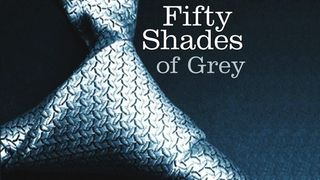
Universal and Fifty Shades Ltd. v. Smash Pictures
The Case: After Universal and Focus Features forked out $5 million for the rights to adapt EL James’ S&M bestseller, Fifty Shades Of Grey , a smaller outfit, Smash Pictures produced a XXX version - and were slapped with a lawsuit for a “willful attempt to capitalize on the reputation of the book.”
One of Smash’s execs Stuart Wall publicly announced their intentions for the porn parody, in an interview with L.A. Weekly : “Since they are going to make a mainstream [film] of the books too, dabbling in the adult world, we're choosing to go with a XXX adaption which will stay very true to the book and its S&M-themed romance.”
Universal aimed to use that direct quote as proof of an intent to violate copyright in the hopes of an injunction and damages.
How It Was Resolved: The two parties reached an agreement; Smash paid Universal an undisclosed amount and consented to an injunction prohibiting the distribution of their XXX version.
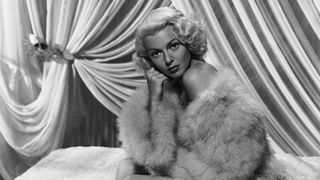
Stompanato v. Turner
The Case: MGM ingenue Lana Turner was embroiled in a $750,000 damages suit brought against both she and her daughter, Cheryl, by the son of her former lover, Johnny Stompanato.
Turner’s daughter, upon overhearing a domestic brawl between her mother and Stompanato, plunged a knife into the gangster’s stomach after he threatened to disfigure Turner.
He later died of his injuries, and his son John II brought the suit against the two women stating his father had been slain without cause.
How It Was Resolved: The coroner’s inquest called Stompanato’s death a “justifiable homicide” - and Turner settled with his son out of court for $20, 000.

Steinberg v. Columbia Pictures Industries, Inc.
The Case: Artist Saul Steinberg sued Columbia Pictures, RCA and other involved parties connected with the promotion of the 1984 film Moscow On The Hudson for copyright infringement.
The case focused upon artwork created by Steinberg for The New Yorker , which the publication copyrighted under the artist’s name. Upon the release of promotional materials for the Robin Williams starrer, Steinberg noticed similarities between the one sheet poster and his original design.
How It Was Resolved: The judge granted summary judgment to Steinberg, on account of the defendants inability to produce evidence that their movie poster was a parody.
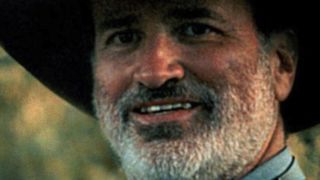
Seven Seas Partnership v. Sycamore
The Case: Director Terrence Malick’s production company Sycamore was sued by the investors of his dream project, Voyage Of Time .
Production on the documentary, narrated by Brad Pitt and Emma Thompson, had taken longer than Seven Seas were led to believe. Their suit alleged that Malick used the funds they appropriated for the life-spanning doco in 2008, and syphoned them into other projects including To The Wonder and Knight Of Cups .
The suit states: “SSPL was an unwitting investor in films produced, directed, and released by Malick, for which SSPL received no compensation, obligation for repayment, or equity interest in any entity.”
How It Was Resolved: Sycamore issued a countersuit, and the two parties reached a settlement wherein Malick must offer Seven Seas a payment to shake loose the suit.
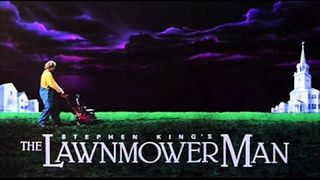
King v. New Line Cinema
The Case: Horror writer Stephen King took New Line Cinema to court for using his name in conjunction with their 1992 film The Lawnmower Man - which borrowed its title from a King short story, yet bore little resemblance to his tale.
How It Was Resolved: The court ruled in King’s favour, serving New Line with an injunction against using the author’s name to promote the movie. They settled with King for $2.5 million... but it doesn’t end there.
In 1993, intrigued to see if the studio were saying true, King hired a team of private investigators to check out copies of the film in several video rental stores - the sleeves still credited King. New Line were found in contempt of court and ordered to pay $10,000 to the writer for each day his name remained attached to the film.

Kennedy v. Paramount
The Case: In a February 2012 handwritten complaint filed against Paramount Pictures at U.S District Court in San Diego, plaintiff Princess Samantha Kennedy noted “They have exploited me. Their actions are willful, willful. I will suffer the rest of my life.”
Kennedy claimed the James Cameron sunken ship epic, Titanic , was based on her family history and swiped from a manuscript she penned between 1990 and 1992 which spans several ancestral generations.
The suit states the Kate Winslet character, Rose, is her sister and Leonardo DiCaprio’s Jack is based on her father, as established in her unpublished biography which the studio were sent by Kennedy in the early 1990s during another dispute.
Kennedy outlined in her suit that every copy of the movie must be destroyed, and for compensation she should be awarded all profits from the film.
How It Was Resolved: The case was dismissed for several reasons: the complaint was handwritten; Kennedy missed the three-year statute of limitations on copyright claims as well as failing to copyright her own novel.

Hoang v. Amazon
The Case: One of the web’s most-highly frequented movie sites, The Internet Movie Database, was slapped with a breach of contract lawsuit from an actress who claimed the Amazon-owned company were directly responsible for her lack of acting work.
Junie Hoang took IMDB to court anonymously in 2011, seeking damages of $1 million after their industry site IMDB Pro utilised third-party creditors to verify the actresses’ age - which she had purposefully omitted from her profile.
The actress blamed the site for losing out on a number of serious roles, as the suit detailed the struggles of women in Hollywood over a certain age when auditioning.
How It Was Resolved: The jury-based trial found IMDB not guilty of breach of contract or any duplicitous legal wranglings.

Faulkner Literary Rights LLC v. Sony Pictures Classics Inc.
The Case: The estate of literary author William Faulkner took Sony to court over a single line uttered in the Woody Allen flick, Midnight In Paris .
Claiming the improper use of the phrase: “The past is never dead. It’s not even past” infringed upon copyrights held by the estate, the suit claimed it would also confuse viewers as to an affiliation between Faulkner and Sony
How It Was Resolved: The U.S. District Judge Michael Mills ruled in favour of the studio: “At issue in this case is whether a single line from a full-length novel singly paraphrased and attributed to the original author in a full-length Hollywood film can be considered a copyright infringement. In this case, it cannot.”

Schwarzenegger v. Ohio Discount Merchandise Inc.
The Case: In May 2004, Arnold Schwarzenegger’s production company filed a suit against Ohio Discount Merchandise, a family-run toy outfit after they produced a bobblehead doll of the star kitted out in a suit wielding a rifle.
According to the suit, the illegally-produced doll violated the star’s image for commercial purposes. Exploiting his globally-recognised likeness with the release of the doll infringed upon Schwarzenegger’s property rights which are worth millions, the claims stated, in the hopes production of the item would cease.
How It Was Resolved: The parties reached a settlement which allowed for the Ohio company to continue producing the doll - without the gun - with the added stipulation that a percentage of the profits benefit Arnold’s All-Stars after-school program.
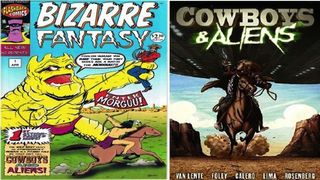
Steven Busti v. Platinum Studios Inc., et al.
The Case: Comic writer, Steven Busti, filed a suit against the producers of 2011’s genre-melding romp, Cowboys & Aliens for copyright infringement on work he created 17 years prior to the movie’s release.
Busti’s comic, Cowboys And Aliens , about a gaggle of extraterrestrials causing havoc in the Wild West was published in a 1994 strip anthology entitled Bizarre Fantasy .
His claims attacked the producers for pinching his idea for their big screen blockbuster as well as for their comic released five years before the film hit cinemas.
How It Was Resolved: A U.S. District Judge dismissed the case, choosing to focus on the graphic novel - not the movie - stating there were insufficient similarities between the two.
A win for Universal, the studio who’d forked out $186,000 in attorney’s fees, who attempted to recoup their legal losses following the judge’s ruling.

Schindler v. DiCaprio and Maguire
The Case: Way back in 1995, two up-and-coming actors, Leonardo DiCaprio and Tobey Maguire starred in a lo-fi indie flick, Don’s Plum , as a favour to a friend.
Four years later one of the film’s producers, David Stutman, took the pair to court accusing them of exploiting DiCaprio’s Hollywood influence to prevent the film from being released - he settled for $10 million and the actors were appeased by a stipulation in the ruling: the film was to never be released in North America.
Fast forward to 2004. Another producer, this time John Schindler, hit the two actors with a $38 million lawsuit - claiming the duo had threatened potential distributors for Don’s Plum . Schindler alleged distribution houses were under pressure to distance themselves from the project otherwise DiCaprio would refuse to work with them in the future.
How It Was Resolved: In December 2006 the Supreme Court judge dismissed the case.

Kalkan v. Nolan and Warner Bros.
The Case: The mayor of a southeastern Turkey city claimed to have sufficient evidence against director Christopher Nolan and Warner Bros. studios for a lawsuit entitling him to a chunk of profits from The Dark Knight . How, you ask?
Huseyin Kalkan alleged the filmmakers didn’t ask permission to use the name of his city - Batman - before production commenced. “There is only one Batman in the world,” he said. “The American producers used the name of our city without informing us.”
The mayor was reportedly preparing a series of charges - ranging from the city’s high suicide rates and unsolved murders.
How It Was Resolved: A stunt to ramp up tourism in Batman? Either way - the threats against the filmmakers never reached a courtroom.

James Dean Inc., v. Twitter Inc.
The Case: One James Dean fan’s Twitter account (@JamesDean) has resulted in a trademark lawsuit against the anonymous user and the social media giant.
Brought by CMG Worldwide; who manage the estates rights’ of deceased celebrities, the suit alleges that neither defendant expressed any concern over the intellectual property rights of the James Dean persona. The trademarks of which are owned by James Dean Inc., who represent the actor’s heirs.
How It Was Resolved: The case, which began in 2009, is still ongoing.

John Doe v. One America Productions
The Case: Sacha Baron Cohen’s Borat has racked up ten lawsuits to date, mainly surrounding the defamation of individuals who feature in the film.
In this instance, two frat boys took the production company to court after claiming they were encouraged to get drunk and let it rip - all under the assurance that the final product would not be shown in the United States.
The suit alleges the film “made plaintiffs the object of ridicule, humiliation, mental anguish and emotional and physical distress, loss of reputation, goodwill and standing in the community” and hoped to secure an injunction against the boys’ segment remaining in the film in addition to financial damages.
How It Was Resolved: L.A. Superior Court Judge Biderman first ruled against the removal of the scenes from the DVD release, and then proceeded to reject the rest of the case in its entirety.

Dan Bilzerian v. Lone Survivor Producers
The Case: When Peter Berg’s Battleship follow-up Lone Survivor sought extra investors, poker aficionado Dan Bilzerian stepped up to the plate and threw in $1 million... on the condition he’d bag eight minutes of screen time.
The suit describes an agreement struck by Randall Emmett and Dan Furla, who promised Bilzerian the role of Sr. Chief Healy in the Navy SEAL biopic. A significant presence on the page, the part was sliced down to less than a minute on screen.
Bilzerian sought to recoup his $1 million as well as an addition $200,000 penalty.
How It Was Resolved: An outcome has yet to be reached by both parties, but a copy of the agreement stating the producers “meaningfully consulted” and had “taken into consideration Bilzerian’s thoughts” could prove key in court.

Monroe LLC v. The Milton H. Greene Archives
The Case: Monroe LLC, the legal heirs of Marilyn Monroe took several photo libraries to court, in this case, The Milton H. Greene Archives over posthumously selling images of the star, which infringed on the publicity rights owned by her estate.
In the long, twisty case - which eventually arrived at the U.S. Court Of Appeals - the plaintiffs sought to prove Monroe kept her main residence in California, therefore protecting them under that state’s laws which allow for likeness rights to be claimed by the proper owners.
How It Was Resolved: A U.S. Appellate Court Judge ruled that there was insufficient evidence to prove Monroe lived in California at the time of her death.

Adrien Brody v. Hannibal Pictures and Giallo Productions
The Case: Oscar-winner Adrien Brody sued the producers of the Dario Argento flick Giallo , in which he starred, for $3 million.
Seven days into shooting, the actor claims the producers kept him from leaving the under-funded project by falsely referring to a $2 million deal struck with an Italian distributor. His cut of $640,000 was inked into a new arrangement with the producers, to be delivered upon completion - which they failed to pay.
Brody’s suit aimed to block all distribution of the title, recoup the $640,000 owed in addition to $2 million for breach of contract.
How It Was Resolved: The U.S. District Judge ruled in favour of Brody, prohibiting the makers from distributing or selling the film in the United States. The actor was also awarded $1 million in backpay.

S. Victor Whitmill v. Warner Bros.
The Case: Tattoo artist S. Victor Whitmill took Warner Bros. to court for “reckless copyright infringement” over a Mike Tyson-inspired piece of tattooing featured in its adult gross-out sequel, The Hangover II.
Whitmill claims the studio did not seek permission for the scenes involving Stu (Ed Helms) donning the Tyson tattoo inked on his face - a design created by the plaintiff.
How It Was Resolved: Warner released a statement indicating the two parties had reached an amicable resolution to the case - and they’d come to a settlement.

Fairbanks Daily News v. Universal
The Case: To coincide with the release of alien abduction chiller, The Fourth Kind , Universal Pictures fabricated a series of articles leaving a ten-year trail of supposedly real extraterrestrial events.
The reports were leaked online, and credited to a real news outlet - the Fairbanks Daily News-Miner - who complained to the studio for undermining their credibility with false journalism.
How It Was Resolved: Universal paid out a $20,000 settlement and removed all articles from the web.

Global Findability v. Summit Entertainment
The Case: In 2009, Global Findability Inc. sought justice in a patent infringement lawsuit against Summit Entertainment for a technique they had registered three years previously.
The suit claimed their “Integrated Information Processing System for Geospatial Media” patent - a method which uses encoded information to generate geographically co-ordinated mapping - had been exploited in the Nicolas Cage predicta-thriller, Knowing .
In the flick, Cage’s MIT physics professor stumbles across an encoded message laden with Nostradamus-esque predictions with regards to the world’s biggest disasters.
How It Was Resolved: The case was thrown out in January 2011 on the basis of failure to serve - the plaintiffs were unable to generate sufficient evidence as to why the case should not be dismissed.

Quentin Tarantino v. Gawker Media Group, Inc.
The Case: Following the online leak of his script, Hateful Eight , which was scheduled to be his next project, Tarantino dashed fan hopes by immediately cancelling the production and taking the news outlet, Gawker to court.
The copyright infringement suit taken out against the media titan and its subsidiaries fingers Gawker and specifically the gossip site Defamer for “crossing the journalistic line” by directing readers to an online copy of the screenplay.
How It Was Resolved: In late February 2014, Gawker Media Group Inc., the parent company was dismissed as the U.S. court hearing the case has no grounds against the Caymans-based company.
The remainder of its subsidiaries are still involved.

Disney v. Phase 4 Films
The Case: The release of animated feature, Frozen Land , three weeks before Disney’s smash hit Frozen landed in cinemas saw the studio giant file a trademark infringement suit against Phase 4 Films - the production house responsible.
In the suit, Disney asserts that the company retitled its film (originally slated for release as The Legend Of Sarila ) as well as “redesigned the artwork, packaging, logo, and other promotional materials for its newly (and intentionally misleadingly) retitled film to mimic those used by [Disney] for 'Frozen' and related merchandise.”
Under law, a title itself cannot be trademarked (unless it’s Harry Potter) - so Disney provided a series of comparative artwork detailing the similarities between the designs for each film, in the hopes of receiving an injunction and destruction of all Frozen Land DVDs and compensation.
How It Was Resolved: Soon after the lawsuit was filed, both parties reached an agreement; Frozen Land returns to its original title, no longer utilises confusing artwork and is withdrawn from distribution.
Phase 4 have also paid out $100,000 to Disney in damages.

Royce Mathew v. The Walt Disney Company
The Case: Supernatural storyteller, Royce Mathew, filed a copyright infringement in 2005 against Disney for allegedly lifting from his work to form the basis of the ghostie pirate transformations in Pirates Of The Caribbean . He reached an agreement with the studio in 2007 at the behest of his representation.
Fast forward six years and the author propelled forward with another suit, this time alleging that the studio used fraudulent evidence to secure the settlement.
During the initial suit, a movie tie-in book hit shelves featuring artwork credited to one artist, Marc Davis, which was later re-used in another book and linked to a different artist - forming the basis for Mathew’s claims.
How It Was Resolved: The battle is still ongoing - but for Mathew to successfully win, he’ll have to prove to a court judge that this latest bout of claims don’t interfere with any statute of limitations associated with his previous suit.

Footman and Glatt v. Fox Searchlight
The Case: In September 2011 two Fox Searchlight unpaid interns, Alex Footman and Eric Glatt, filed a lawsuit against the studio, seeking backpay. The suit claimed the duties carried out on the set of Darren Aronofsky’s Black Swan by the plaintiffs and a further 100 unnamed interns were not educational and/or vocational - but more akin to minimum-wage dogsbody labour.
How It Was Resolved: A New York federal judge ruled in favour of the plaintiffs in June 2013 stating that their roles and responsibilities fell within the parametres of the Fair Labor Standards Act as genuine employees. He also certified a class action suit for the case to expand further.
In September 2013, Fox’s appeal against the ruling was granted and heading to a Second Circuit court for further guidance on what constitutes an intern and if they’re entitled to wages. The case continues.
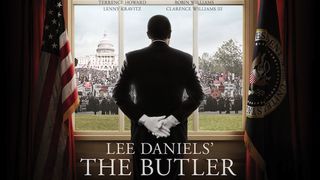
The Weinsteins v. Warner Bros.
The Case: Warner Bros. filed a rights claim against The Weinstein Company over the title of White House butler Eugene Allen’s story - The Butler .
Take a gander through Warner’s back catalogue and there exists a 1916 silent short of the same name - hence the battle urging The Weinsteins to rethink their title.
How It Was Resolved: The Motion Picture Association of America's Title Registration Bureau awarded Warner Bros. with the exclusive right to the name. The Weinstein Company appealed the decision - and lost - but were granted permission to instead call it Lee Daniels’ The Butler .

Gori v. Scorsese
The Case: Martin Scorsese’s procrastination over his long-awaited project, Silence , plunged him into a legal battle with producer Cecchi Gori.
Originally intending to produce the flick - based on Shusaku Endo’s period novel - back in 1990, Scorsese pushed the start date, choosing to delve into other projects first. Until Gori grew tired of waiting.
In 2012, he served the director with an intentional and negligent misrepresentation lawsuit, after apparently sinking $750,000 into the project over the years, claiming he’s owed $1.5 million and 20% of the profits from “each feature film that Scorsese should direct after Hugo and before Silence (including without limitation Wolf of Wall Street )”
How It Was Resolved: The score was settled out of court for an undisclosed sum, and Silence heads into production with Liam Neeson and Andrew Garfield in starring roles.

The Ramapough v. Relativity Media
The Case: Seventeen members of the Ramapough Lunaape Nation, a Native American tribe situated in the Ramapo Mountains of New York, filed a lawsuit against Relativity Media, the production outfit behind Out Of The Furnace .
The defamation suit came on the heels of Ramapough officials denouncing the film as a “hate crime” due to casting the tribe in a negative light - as “drug-addled inbreds.” While Relativity’s official response iterated the film’s fictional rooting, the tribe asserted the usage of common tribal surnames for the movie’s villains caused damage to their reputation.
How It Was Resolved: Currently ongoing, if the plaintiffs are successful, the tribe could be awarded $50 million in damages.
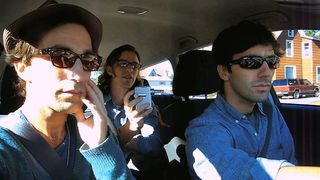
Threshold Media v. Relativity Media and Universal
The Case: The distributors of 2010 cult documentary, Catfish , were issued a lawsuit by Threshold Media concerning a song by one of its artists appearing in the film without their consent.
Threshold’s suit claims they are owed licensing fees for the track, which forms an integral part of the film’s twists. Relativity asserted the film’s documentary status as the reason fair usage laws protect them from such a squabble. Meaning - they stumbled across it and so they should be entitled to use it without paying its rightful owners.
Of course, the key issue in this case lies in the film’s creators Ariel Schulman and Henry Joost, who would have to testify in court as to the authenticity of their documentary film. If any part was fabricated, fair usage does not apply.
How It Was Resolved: The film was slapped with another lawsuit - this time from the U.K. - but neither case has reached a conclusion to date.

Captain Phillips Crew v. Maersk et al.
The Case: Maersk Line and Waterman Steamship Corp., the shipping companies at the fore of Paul Greengrass’ pirate actioner, Captain Philips , have come under fire from the actual crewmen who served with the real-life Philips, who’re now seeking damages of $50 million.
In October 2013, suits filed in Alabama and Texas by a handful of his co-workers claim the film muddled the true facts of the case, causing physical and emotional injuries. Brian Beckcom, the attorney handling nine of the Cap’s subordinates, stated:
“I want moviegoers to know that the true heroes are the Navy marksmen and Navy personnel who bailed out the shipping company and Captain Phillips... The pirate hijacking would never have taken place if not for the negligence of the captain, shipping company, and ship operator.”
The suit alleges Phillips continued to ignore maritime warnings indicating that at 250 miles from the coast, he had placed the freighter in a prime location for pirates instead of the recommended 600 miles.
How It Was Resolved: As of December 2013, an Alabama judge postponed the trial due to both parties entering mediation in an attempt to settle out of court. If they fail to reach a compromise, a trial-by-jury is likely to be held this summer.

The Weinsteins v. Warner Bros and New Line
The Case: Bob and Harvey Weinstein, former Miramax owners and current heads of The Weinstein Company, filed a $75 million damages lawsuit against Warner Bros. and New Line Cinema in December 2013 concerning profits owed from The Hobbit franchise.
The brothers originally owned the rights to Tolkien’s works in the 1990s before they struck a deal with New Line who then assumed the rights to the property.
As part of the agreement, a courtesy was established entitling the Weinsteins’ to 5% of the gross from the first motion picture based on each Tolkien book. As The Hobbit has since been divided into three separate installments - the crux of the suit claims they are “entitled to compensation from the second and third installments of The Hobbit film.”
How It Was Resolved: The case is ongoing, with reports claiming that Warner Bros. are seeking to settle the dispute through arbitration - using a mediator outside of the courts.

Deming v. Film District LLC, et al.
The Case: Disgruntled Michigan resident, Sarah Deming filed a lawsuit against distributor Film District LLC, and movie theatre chain, Emagine Novi, after the film Drive failed to meet her Fast and Furious -esque expectations derived from watching its preview.
According to the suit, Deming claims the misleading trailer violated Michigan’s Consumer Protection Act by depicting a high-octane, balls-to-the-walls actioner which turned out to be a dark violent thriller... with “very little similarity to a chase, or race action film... having very little driving in the motion picture.” It went on to further accuse the film of anti-semitism.
How It Was Resolved: An Oakland Circuit judge dismissed the case, stating that Deming failed to substantiate the Consumer Protection Act claims or rebut the defendants’ First Amendment (free speech) arguments.
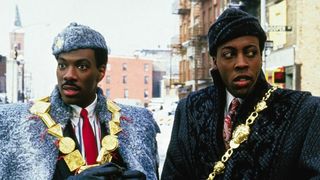
Buchwald v. Paramount
The Case: Screenwriter and comic Art Buchwald filed a breach of contract lawsuit against Paramount Pictures, claiming the studio stole his idea, King For A Day and produced it as the Eddie Murphy vehicle, Coming To America .
Buchwald pitched his early treatment to Paramount’s Jeffrey Katzenberg in 1982, which the studio optioned leading to several commissioned scripts. Two years later they dropped the project, and Warner Bros. picked up Buchwald’s treatment... then they too dropped it after Paramount announced a new rags-to-riches feature on their upcoming slate, allegedly written solely by Murphy.
Buchwald sued.
How It Was Resolved: The California Superior Court ruled in favour of the plaintiff, citing an overwhelming wealth of evidence indicating similarities between the two scripts and the very fact that Paramount had access to Buchwald’s first treatment. The studio settled for an undisclosed amount.

Between The Lines v. Lionsgate and Summit
The Case: Between The Lines, the outfit responsible for Twilight parody TwiHarder , filed a suit against Lionsgate and Summit claiming the real teen-vamp franchise isn’t the wholesome family experience it alleges - it’s actually rife with racial profiling towards Native American culture.
It further lists the lustful relationship between the film’s heroine Bella and centuries-old Edward as a perversion, the emphasis on skin colour over “what’s inside” and a propensity for domestic violence.
The mind boggles as to why this small production house would take the two studios behind Twilight to court. Maybe because Between The Lines unsuccessfully tried to sue them both previously for $500 million after Lionsgate and Summit tried to quash TwiHarder .
How It Was Resolved: Filed back in December 2013, the case is currently ongoing - although their previous attempt to sue the filmmakers was thrown out.

Dallas Buyers Club LLC v. Does 1-31
The Case: In February 2014, the copyright holder for Oscar-winning biopic Dallas Buyers Club , Dallas Buyers Club LLC filed a copyright infringement suit against 31 specific users responsible for unlawful distribution of the film online via torrent channels.
Filed in federal court at the Southern District Of Texas, the suit describes how IP addresses were collected via geolocation technology - enabling them to pinpoint specific individuals.
Should the plaintiffs be successful, those responsible will be faced with a hefty fine for damages and lawyer fees as well as a permanent injunction preventing them from further distribution of the title.
How It Was Resolved: The case is still on-going. However, co-producers Voltage Pictures have previously tussled with online pirates in the largest ever file-sharing lawsuit in 2011, when they sued thousands of torrent users for downloading The Hurt Locker .

T. Allen Chey v. Netflix, Inc.
The Case: Filmmaker T. Allen Chey filed a damages suit with the U.S. district court in California, claiming Netflix’s involvement in “the most egregious act ever committed by a film distributor.”
Chey asserted in the suit that he lost out on untold financial remuneration when the rental giant refused to carry his film Suing The Devil after initially listing it on their site with a “save” option.
Seeking $10 million, the filmmaker’s main beef lay with the current cinemagoer’s rationale of “waiting for it to come out on Netflix” instead of forking out for a trip to the cinema. Hence the film’s theatrical run suffered as a result.
How It Was Resolved: Netflix retaliated, stating the lack of evidence indicating they committed to carrying the title. The judge dismissed the case.

Andrew Greene v. Paramount Pictures, et al.
The Case: In New York Federal Court, Andrew Greene, an ex-member of the board at the brokerage house made famous in The Wolf Of Wall Street ; Stratton Oakmont, filed a defamation lawsuit claiming his likeness, characterisation and image were used without his consent.
His on-screen counterpart, whose name switched from Wigwam (his name in the memoir) to Nicky “Rugrat” Koskoff, dabbles in a series of ethically-questionable acts. In addition, his toupee-wearing caricature is at the receiving end of several crushing verbal insults from Jordan Belfort and Donnie Azoff, further bolstering his claims of suffering from damaging libellous statements.
How It Was Resolved: For now, the case is ongoing. Should Greene be successful, he stands to bag $25 million from Paramount and Red Granite Pictures.

Harlan Ellison v. James Cameron
The Case: Legendary sci-fi scribe, Harlan Ellison claimed James Cameron had swiped story strands integral to The Terminator from two of his short stories; Soldier and Demon With A Glass Hand , which Cameron had supposedly seen when adapted into episodes for The Outer Limits .
How It Was Resolved: While Ellison stuck to his guns, he never officially filed a complaint. Instead the parties settled out of court for a fee rumoured to be around the $65,000 mark - as well as an acknowledgment to Ellison in the film’s credits.
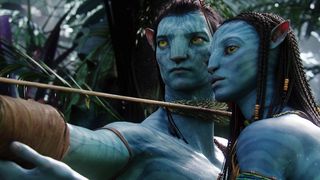
Bryant Moore v. Lightstorm Entertainment, et al.
The Case: James Cameron came under scrutiny once more when sci-fi author Bryant Moore sought a $2.5 billion settlement from the director himself, Cameron’s Lightstorm Entertainment, and Fox, the studio behind Avatar , for supposedly ripping off his screenplays Aquatica and Descendents .
The writer submitted his work to Fox for consideration and never received confirmation from the studio - until he saw Avatar and spotted several similarities between the properties.
How It Was Resolved: Federal Court Judge Titus ruled in favour of Cameron and the studio - citing a series of documents submitted into evidence proving the director’s early inspiration for the film. As well as the real clanger; Lightstorm never actually received the screenplay submissions.

Lugosi v. Universal Pictures
The Case: In a suit brought to the Supreme Court of California, the heirs of Bela Lugosi, whose popularity skyrocketed following his role as Dracula , sued Universal Pictures for using the then-deceased Lugosi’s likeness without their permission.
In 1966, the Lugosis claimed that Universal had entered into multiple licensing agreements based on Lugosi’s likeness - to which the heirs were entitled a portion of the profits.
How It Was Resolved: At the trial, the judge ruled in favour of the heirs, awarding them $70,000 in conjunction with barring Universal from further utilising Lugosi in any future merchandising.
Universal won a subsequent appeal at the California Supreme Court which announced the likeness rights belonged solely to the artist and could not be inherited by relatives.

Milan High Court v. Ruggero Deodato
The Case: Deodato’s now-infamous found footage classic, Cannibal Holocaust , made its big screen debut in Milan, Italy in February 1980.
Within ten days of its release, a local judge confiscated the film, believing the fictional tale of four filmmakers searching out an indigenous cannibal tribe, were actually murdered.
Deodato was arrested and charged. Unfortunately, he’d previously made arrangements with his leading cast convincing them to stay out of the limelight for a year following the film’s release - so as to further incite intrigue - somewhat bolstering the judge’s belief that the film was a genuine snuff...
How It Was Resolved: Deodato contacted his missing cast to appear before the courts and all murder charges against the director were dropped.
The court still kept the film confiscated, after unearthing an old animal cruelty law Deodato had violated in the murder of six animals onscreen. He received a four-month suspended sentence, a $300 fine and the movie was banned in Italy, until the court of appeals overturned that ruling in 1984.

Italy v. Lucio Fulci
The Case: One particularly gruesome scene in Lucio Fulci’s A Lizard In A Woman’s Skin caught the attention of the Italian courts back in 1971. As the film’s heroine Carol runs through a clinic, she stumbles across a room of vivisected dogs in varying degrees of mortal agony; their limbs twitching and organs pulsing, all atop the soundtrack of wailing canines.
Fulci faced a stiff prison sentence on six charges of animal cruelty due to the realistic appearance of the slaughtered animals.
How It Was Resolved: Special effects maestro Carlo Rambaldi, and the film’s producer Edmondo Amati appeared in court in four Italian cities, each time wheeling out a series of animatronic dogs. Constructed from coyote skin and rubber, Rambaldi’s creations were demonstrated to the judge and jury - and the case was thrown out.
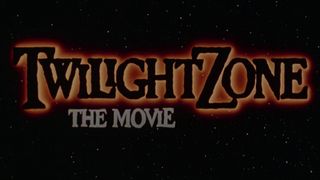
The Twilight Zone Cases
The Case: During the shooting of John Landis’ segment of Twilight Zone: The Movie , a Vietnam war scene in which actor Vic Morrow and two young Vietnamese children were chased by a helicopter ended in tragedy. The special effects pyrotechnics distracted the pilot - he lost control of the helicopter and crashed into the three actors, killing them instantly.
Landis, the pilot, the special effects co-ordinator and two other crew members landed involuntary manslaughter charges. During the ten-month long trial, the defense persisted the accident could not have been predicted, while the prosecution based their argument around the violation by the accused of child labour laws.
How It Was Resolved: The jury found the defendants not guilty. The families of the victims also sued Landis, Warner Bros. and producer Steven Spielberg for $200 million - which were settled for an undisclosed sum.

Byers v. Oliver Stone And Warner Bros.
The Case: Grocery store clerk, Patsy Byers was shot by two 18-year olds at her place of employment in Louisiana by two attackers - Sarah Edmondson and Ben Darras, who had repeatedly watched Natural Born Killers before embarking on a crime spree.
Byers’ family not only took the accused to court - they expanded their suit to include Warner Bros. and director Oliver Stone. The lawsuit claimed the director, producers and distributors of the 1994 blood-soaked road movie were responsible and should fork out damages for creating a film deliberately intended to incite violence in its audience.
How It Was Resolved: In 2001, the sprawling case was finally thrown out by Judge Robert Morrison who ruled the film and its creators were protected on First Amendment grounds - the right to free speech.

Yusupov v. MGM
The Case: MGM, the studio behind 1932’s Rasputin And The Empress , were sued by Princess Irina Yusupov for invasion of privacy and libel.
The film, a fictional re-telling of the life of Russian mystic-monk Grigori Rasputin, included scenes wherein Yusupov’s onscreen counterpart Princess Natasha (Ethel Barrymore) was touted as Rasputin’s mistress and later raped by him.
Yusupov, who in real-life was wife to Prince Felix Yusupov (one of the men who killed the mystical monk), denounced the film’s content as untrue and that she had never suffered at the hands of Rasputin.
How It Was Resolved: She was awarded $127,000 in English court, and settled out of court in the U.S. with MGM for a reported $1 million.
The landmark status of this outcome is evidenced by the now-standard disclaimer affixed to the credits of every film: “This motion picture is a work of fiction and any resemblance to persons living or dead is purely coincidental.”
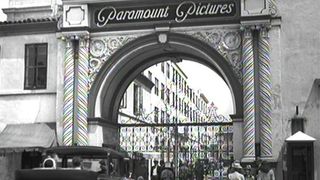
United States v. Paramount Pictures
The Case: A landmark decision essentially drawing to a close the era of the Hollywood Studio System, in 1945 the U.S. federal government filed a lawsuit against the Big Eight studios for unfair trade practices.
The government’s claims pursued the studios’ illegal distribution methods, which included theatres only exhibiting films produced by the studio which owned them. This controversial behaviour contravened earlier rulings by the federal court demanding the major studios submit to a consent decree. They didn’t.
How It Was Resolved: After reaching the supreme court in 1948, the 7-1 ruling swayed in favour of the government, demanding that studios uncouple from their theatres.
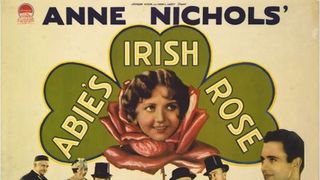
Nichols v. Universal Pictures Corporation
The Case: Brought before the United States Court of Appeals for the Second Circuit, playwright Anne Nichols asserted in a lawsuit that her original work, Abie’s Irish Rose , had been plagiarised by Universal Pictures.
The defendants’ film, The Cohens And Kellys , shared similar traits (characters sharing the same heritage, a romantic squabble, etc.) to Nichols’ screenplay - forging the crux of the lawsuit.
How It Was Resolved: The court affirmed that copyright cannot be infringed if the ideas in question are universal traits, concepts and characters.

Mutual Film Corporation v. Industrial Commission of Ohio
The Case: In 1915, movie distributor, Mutual Film Corporation (famous for producing some of Charlie Chaplin’s noted works), fought against the Industrial Commission Of Ohio. The plaintiffs aimed to rescind the state’s 1913 statute following which, the government formed a board of censors tasked with deliberating and approving all cinematic content for public consumption.
Mutual argued that the board’s delegations were a violation of free speech - aka the First Amendment.
How It Was Resolved: The United States Supreme Court ruled in a 9-0 vote that free speech did not extend to motion pictures - as they are a business, not related to the press or public opinion, and may be “used for evil.”
However, in 1952 the Supreme Court overturned its earlier decision in the case of Joseph Burstyn Inc, Vs. Wilson. In film history, the landmark case is more commonly referred to as the Miracle Decision, on account of the film in question, Rossellini’s 1948 short film, The Miracle .

Gem Seddon is 12DOVE's west coast Entertainment News Reporter, working to keep all of you updated on all of the latest and greatest movies and shows on streaming platforms like Netflix and Amazon Prime. Outside of entertainment journalism, Gem can frequently be found writing about the alternative health and wellness industry, and obsessing over all things Aliens and Terminator on Twitter.
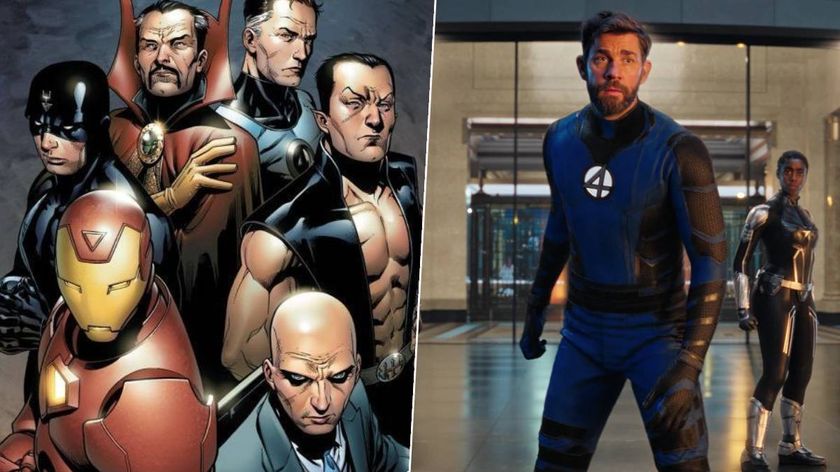
Captain America: Brave New World post-credits scene teases the Illuminati reveals director after the group were axed from an early draft
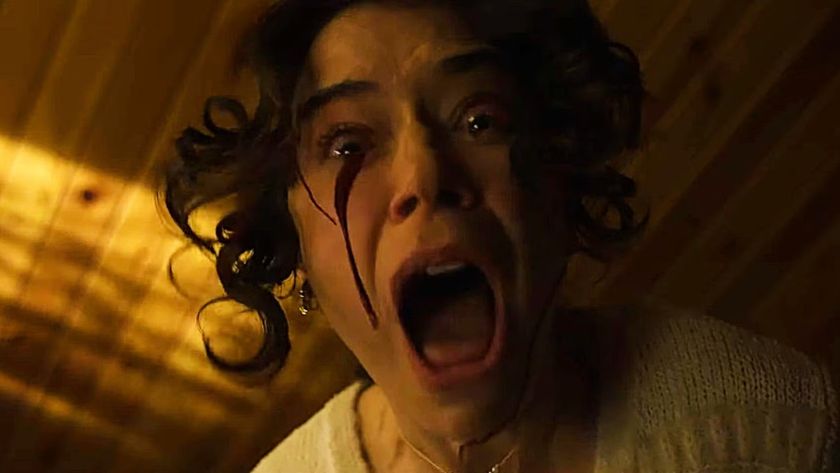
The Monkey star explains the big difference between her character's death and the horror movie's more zany kills: "This had to break your heart instead of make you laugh"

Captain America: Brave New World post-credits scene teases the Illuminati reveals director after the group were axed from an early draft

The Monkey star explains the big difference between her character's death and the horror movie's more zany kills: "This had to break your heart instead of make you laugh"
Most Popular





